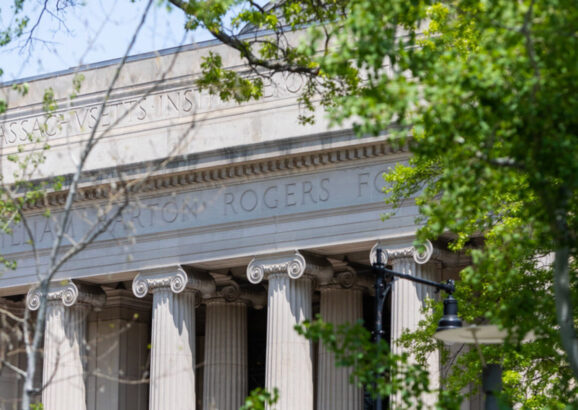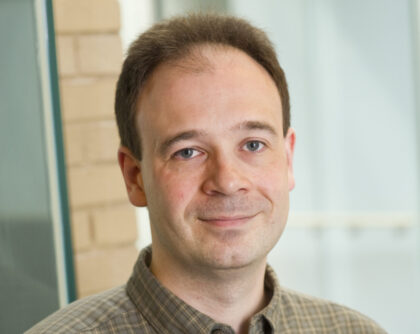Iain W. Stewart
Otto (1939) and Jane Morningstar Professorship in Science
Professor of Physics
Professor of Physics
Designs and applies Effective Field Theories to describe physics at collider experiments and to explore the structure of quantum field theory.
Research Interests
- Professor Stewart’s research interests involve theoretical nuclear and particle physics. In particular, he focuses upon the development and application of effective field theories to answer fundamental questions about interactions between elementary particles, including weak and electromagnetic interactions, and in particular strong interactions described by Quantum Chromodynamics (QCD).
- The idea of an effective field theory is to determine the relevant degrees of freedom and symmetries of a system and combine this with a power counting expansion to derive an efficient and precise field theory framework for calculations.
- Professor Stewart is a co-inventor of the Soft-Collinear Effective Theory (SCET), a field theory that separates short and long distance physics in processes involving energetic collisions of quarks, gluons, and other particles. This formalism makes it possible for a universal set of tools to handle a wide range of physics probed at proton and electron colliders, including jet physics, B meson physics, quarkonia production, and nuclear physics.
- Professor Stewart has also contributed in the areas of Quasi-Distributions (for Lattice calculations of parton distribution functions), Heavy Quark Effective Theory (for b quark decays), Non-Relativistic QCD and QED (for heavy quark-antiquark systems and atomic systems like Hydrogen and positronium), and Nucleon Effective Theory (for two nucleon or deuteron systems interacting with low energy pions).
- A major focus of Stewart’s current work is on theoretical ingredients needed to describe proton collisions at the Large Hadron Collider (LHC). Examples include his work on Higgs production and jet production.
Biographical Sketch
- Professor Stewart joined the Physics faculty at MIT in January of 2003, was promoted to Associate Professor with tenure in 2009, and full Professor in 2013.
- Prior to coming to MIT he was a Research Assistant Professor with the Institute for Nuclear Theory at the University of Washington in 2002, and a postdoctoral research associate at the University of California, San Diego from 1999–2001.
- Prof. Stewart received his Ph.D. from the California Institute of Technology in 1999.
- He earned a Masters degree in Physics in 1995 and an Honors B.Sc. degree there in Physics and Mathematics in 1994, both from the University of Manitoba, Canada.
More info:
In the news

In the news
Twenty-three MIT faculty, five from Physics, honored as “Committed to Caring” for 2023-25
The honor recognizes professors for their outstanding mentorship of graduate students.
Awards & Honors
- 2024 // Frank E. Perkins Award for Excellence in Graduate Advising of the MIT Graduate Student Council
- 2023-2025 // Committed to Caring honoree (MIT)
- 2021 // Appointed Otto (1939) and Jane Morningstar Professorship in Science (MIT)
- 2015 // Buechner Faculty Teaching Award, MIT
- 2014 // Simons Investigator of the Simons Foundation
- 2012 // American Physical Society Fellow "For the development and application of powerful effective field theory techniques for analyzing nonperturbative processes in the strong interactions, ranging from nucleon-nucleon collisions to top quark production."
- 2008 // Friedrich Wilhelm Bessel Award from the Alexander von Humboldt Foundation
- 2004 // Sloan Research Fellowship
- 2003 // Outstanding Junior Investigator Award, US Department of Energy
